 Our World
Our World  Our World
Our World  Crime
Crime 10 Dark Details of the “Bodies in the Barrels” Murders
 Animals
Animals The Animal Kingdom’s 10 Greatest Dance Moves
 Movies and TV
Movies and TV 10 Box Office Bombs That We Should Have Predicted in 2025
 History
History 10 Extreme Laws That Tried to Engineer Society
 History
History 10 “Modern” Problems with Surprising Historical Analogs
 Health
Health 10 Everyday Activities That Secretly Alter Consciousness
 History
History Top 10 Historical Disasters Caused by Someone Calling in Sick
 Animals
Animals 10 New Shark Secrets That Recently Dropped
 Movies and TV
Movies and TV 10 Forgotten Realities of Early Live Television Broadcasts
 Our World
Our World 10 Places with Geological Features That Shouldn’t Exist
 Crime
Crime 10 Dark Details of the “Bodies in the Barrels” Murders
 Animals
Animals The Animal Kingdom’s 10 Greatest Dance Moves
Who's Behind Listverse?

Jamie Frater
Head Editor
Jamie founded Listverse due to an insatiable desire to share fascinating, obscure, and bizarre facts. He has been a guest speaker on numerous national radio and television stations and is a five time published author.
More About Us Movies and TV
Movies and TV 10 Box Office Bombs That We Should Have Predicted in 2025
 History
History 10 Extreme Laws That Tried to Engineer Society
 History
History 10 “Modern” Problems with Surprising Historical Analogs
 Health
Health 10 Everyday Activities That Secretly Alter Consciousness
 History
History Top 10 Historical Disasters Caused by Someone Calling in Sick
 Animals
Animals 10 New Shark Secrets That Recently Dropped
 Movies and TV
Movies and TV 10 Forgotten Realities of Early Live Television Broadcasts
10 Outrageous Liars Who Tried To Profit From The Dead
The world is filled with liars and con artists. Some go above and beyond by devoting their lives to running a “long con” if it means they will make a huge profit. Others take these cons to the next level by taking advantage of people who truly cannot defend themselves—the dead.
10 Emily Grant Hutchings
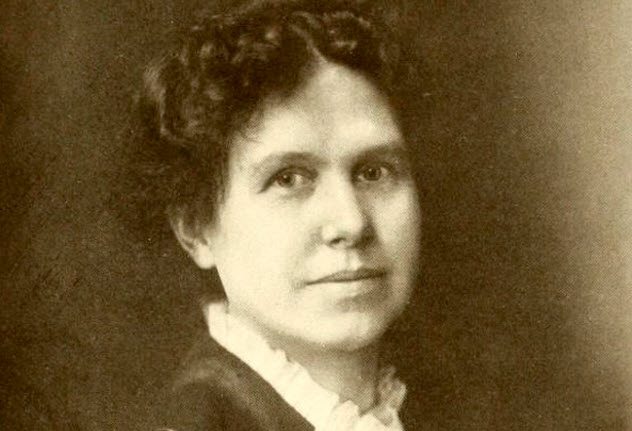
When new writers get one too many rejections from publishers, it can seem like they will never get a book deal. As crazy as it sounds, multiple people in the early 1900s claimed that they communicated with famous dead authors via Ouija boards.
One of these liars was Emily Grant Hutchings. In 1917, she wrote a book called Jap Herron: A Novel Written From the Ouija Board. She claimed that the ghost of famous author Mark Twain was speaking to her and had asked her to dictate a new novel from beyond the grave.
For anyone who is curious, the entire novel is available on Google Books. However, Twain’s “ghost” seems to have lost his touch in the afterlife. The New York Times gave the book scathing reviews. They also joked that Twain’s ghost should appear in court via the Ouija board to defend himself.
The owners of Mark Twain’s intellectual property rights sued Emily’s publisher, who had to stop printing and selling new copies of the novel. Although the book was not considered to be a huge success, Emily still got her book reviewed in The New York Times and she was still able to make money from the controversy that surrounded the book.[1]
9 Brian Adams

Brian Adams was a 56-year-old unemployed man living with his elderly mother, Janell, and his son in Green Cove Springs, Florida. They were all living on Janell’s Social Security checks and her pension each month.
In 2014, Brian discovered that his mother had died from natural causes. If they reported Janell’s death, it would mean that Brian and his son had no money to live on. He convinced his son to help him carry Janell’s corpse to the backyard, dig a deep hole, and bury her body.
Every month, the money continued to come in. Brian deposited the checks into Janell’s account and then transferred all the money into his name. This went on for quite a while. He collected a total of $35,345.[2]
One day, Brian’s daughter, Brittanie, confronted her father on his ability to continue to have money even without a job. He shared the secret of the stolen checks. Brittanie did not waste any time calling the police to report her father because he had a past criminal record. He faces up to 12 months in prison.
8 Thomas Patrick Morris
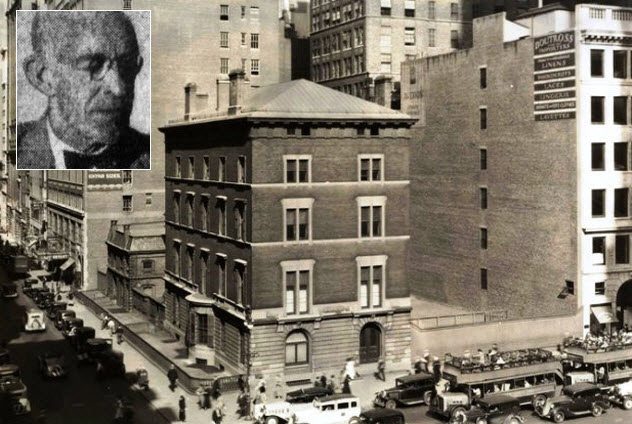
In the late 1800s to early 1900s, the Wendels were the wealthiest landlords in New York City. They made so much money from their Manhattan properties that they became multimillionaires.
However, the family was very frugal. They barely left the house and had few friends. As a result, none of the Wendels got married or had any children. Ella was the last Wendel left alive. She only spent time with her poodle, Tobey, and her servants.
When Ella died in 1931, her inheritance was a staggering fortune of $100 million. (After inflation, that would be more like $1.6 billion today.) Ella wrote in her will that the fortune should be divided among charities. Some money was also given to the servants to take care of her dog. When her death was reported in the newspapers, over 2,300 people claimed to be related to her in some way.
One man named Thomas Patrick Morris traveled from Scotland to go to court to prove that he was related to Ella. He provided a forged marriage certificate, claiming that he was the son of Ella’s brother, John Wendel. Morris also wrote an elaborate letter, supposedly written by John Wendel, which claimed that Wendel had secretly eloped with Thomas’s mother in Scotland.
On top of everything else, Thomas looked almost exactly like John Wendel and it would not have been difficult to imagine them as father and son. If he truly was a Wendel, Thomas would have become a very rich man.[3]
However, the lawyer defending Ella’s estate did some research in Scotland. He found the request for the forged marriage certificate very obviously written in Thomas’s handwriting. The lawyer also found records from the family business proving that John Wendel was in New York City during the time that he was supposedly falling in love and getting married in Scotland. Once all of Morris’s lies were uncovered, he was arrested for fraud.
7 Carel Cody

From 1988 to 1994, Carel Cody had a licensed eldercare facility in her home in Cottage Grove, Oregon. When social services heard that her patients were dying quickly, they suspected that the patients might be neglected.
Social services paid her a visit. They found that the entire house was so dirty that it was unfit for eldercare. She also had a pet monkey, which made the place even more unsanitary. Carel’s caretaker license was revoked. The Social Security employees may not have realized it then, but Carel had been stealing money from every patient who entered her home.
Once she was out of a job, Carel started volunteering at nursing homes. She seduced an elderly disabled man known as “M.B.” into marrying her. The Social Security income from her new husband was not enough to stop Carel’s greed, so she brought in a new patient to live with her.
John H. Arnold was an orphan who had never married or had any children. She convinced him to leave the nursing home and move into her “elder care facility.” In 1996, he died at 76 years old.
Carel buried his body on her mother’s land. Since she had lost her caretaker license, she was no longer getting checkups from social services. She told her husband that John had moved away. Once M.B. realized how crazy and abusive Carel actually was, he divorced her.[4]
Carel continued to secretly collect John’s Social Security checks for the next 16 years. She also had access to his bank account, which contained his retirement savings and investments. She stole more than $200,000. She was finally caught in 2013 and sentenced to four years in federal prison.
6 Anna Anderson
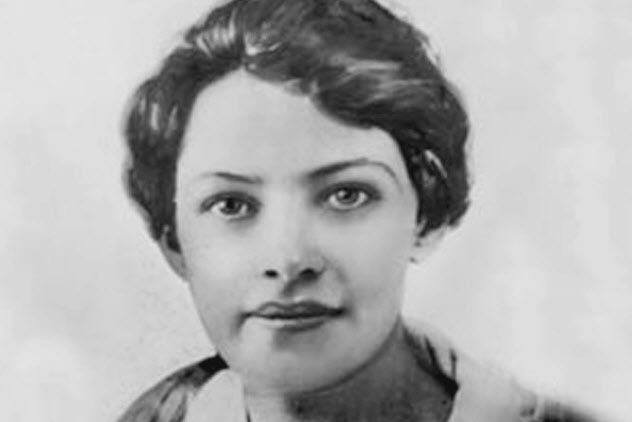
In 1920, a beautiful young woman tried to throw herself off a bridge in Berlin, Germany. A police officer saved her life and brought her to a mental hospital. She barely spoke, and when she did, it was with a Russian accent. The doctors called her “Miss Unknown.” She had scars all over her body from some sort of abuse or trauma and refused to tell anyone her name.
In 1922, a Russian patient arrived at the hospital. As soon as she saw Miss Unknown, the new patient told the doctors that she thought that Miss Unknown was one of the daughters of the royal Romanov family.
The entire family had been assassinated during the Bolshevik Revolution in 1918, but many had hoped that some of the children had managed to escape the country. Miss Unknown looked almost identical to Anastasia, and they were the same age. Since Miss Unknown struggled to remember her true identity, she never denied the claim.
Once the news spread in the press, many people began to speculate that this woman could, in fact, be Anastasia. Friends and family members who knew Anastasia personally met Miss Unknown, asking her questions that only a Romanov would know the answers to. Roughly half of them believed that she really was Anastasia, and half of them believed that she was an impostor after fame and fortune.
The Romanov relatives ultimately decided that she did not deserve to receive any inheritance. However, many friends of the royal family actually believed her and felt extremely sorry for the disowned “princess.”
A woman named Annie Burr Jennings took “Anastasia” under her wing, paying for her to move to the United States and change her name to Anna Anderson. Jennings allowed Anna to live in her luxurious Manhattan apartment. Aristocrats sent her money and paid for anything she needed. At other times in her life, she got to live in a castle of a Romanov relative as well as mansions belonging to her supporters.[5]
In the late 20th century, investigators were able to compare DNA evidence to Anna Anderson and discovered that she was actually a Polish factory worker. She had suffered from head trauma after a grenade explosion, which is also where her scars came from. Since she was confused about her identity, it is possible that Anna may have been convinced that she actually was Anastasia. But ultimately, it was all a lie.
5 Marsha Henderson
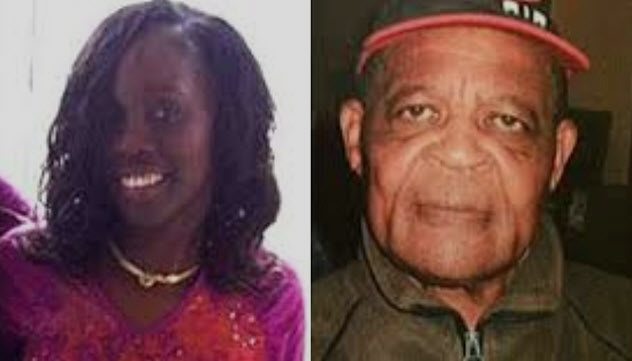
A young woman named Marsha Henderson was in her twenties when she married 76-year-old Newton Davies in London. He was retired and volunteered as a school crossing guard. Besides his life savings and pension, he owned a house in London, where real estate property values have skyrocketed in recent years.
If the term “gold digger” doesn’t automatically come to mind, maybe it should. When Newton died at 85 years old in 2013, he left behind a whopping £600,000 inheritance.[6]
Marsha was shocked to learn that Newton had written in his last will and testament that she would only get £25,000. The rest of the money and the deed to his home were left to Newton’s daughter, Paulette.
Marsha refused to move out of the house even though it was left to her stepdaughter. In an attempt to get the inheritance, Marsha put together a fake will that claimed she deserved to keep the house and over £500,000.
It was a ridiculously bad forgery that containing spelling errors and even referred to Mr. Newton as a woman at one point. To top it off, Marsha claimed that no one had discovered the “newest will” until that point because she had found it hidden inside an attic crawl space in an empty Doritos bag.
When the case was brought to court, the judge called Marsha out on how obvious and ridiculous her lies were. He ordered Marsha to pay Paulette £42,000 in unpaid rent because Marsha had refused to vacate the home after Newton’s death.
4 Renee Bowman

In the United States, people can bring foster children into their homes and receive a monthly check for their expenses. In Maryland, foster parents can receive nearly $800 per month for each child.
A woman named Renee Bowman agreed to foster three girls, two of whom were sisters who had escaped an abusive family situation. For that, Bowman was receiving $2,400 per month from the government, which covered the rent on her house and her personal expenses.
In 2009, one of the girls was seven years old. She jumped out a window in Bowman’s home and ran to a neighbor for help. It turns out that Bowman had been abusing and starving the girl, but the entire truth was even more horrific.
That little girl’s sister and the third foster girl were dead. Their bodies had been kept in a freezer, which Bowman had taken with her when she moved three times. She had killed them but kept the third girl alive in case anyone wondered where the kids had gone.[7]
3 Albert Houghton Pratt
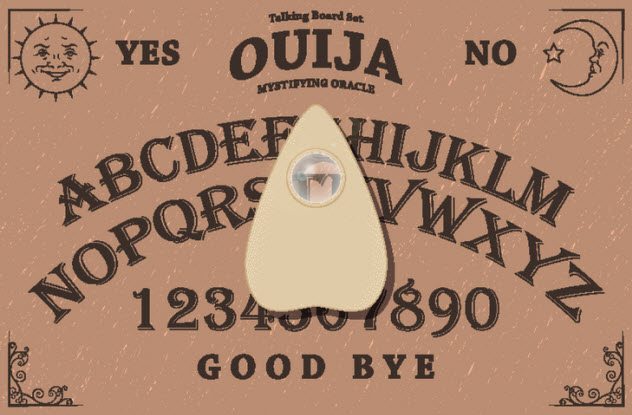
In 1918, Albert Houghton Pratt wrote a book called My Tussle with the Devil and Other Stories by O. Henry’s Ghost.[8] On the first page, Pratt’s introduction addresses the “skeptics” he knows will be reading the book. He claims that if the story doesn’t seem like it is written in the same style as the famous O. Henry, that’s because his writing style has matured in the afterlife.
Pratt was yet another writer who claimed to communicate with a dead author via a Ouija board. He even stops some of the stories to interject some of their apparent dialogue with one another.
There is very little record of how the public reacted to this ghost novel. But there is a record of a few of Pratt’s other publications, including a book on mysticism. In 1922, The New York Times announced that Pratt had been evicted from his home in New Jersey because he was in arrears on his mortgage. So he must not have profited from O. Henry’s ghost very much after all.
2 Arafa Nassib And Adil Kasim
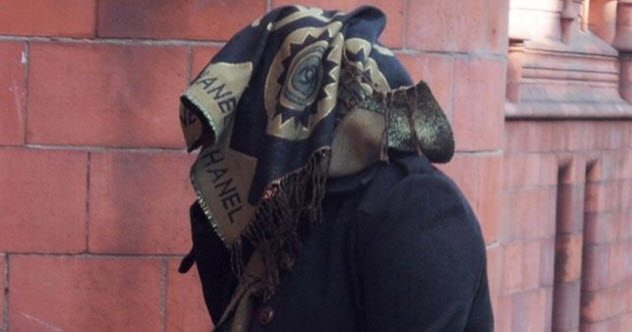
In 2017, a 48-year-old woman named Arafa Nassib was arrested . . . when she was supposed to be dead. She had set up a scam with her 18-year-old son, Adil Kasim. They took out a large life insurance policy on Arafa. The family had been living in the United Kingdom but was originally from Tanzania. So when they traveled back home, Adil reported that Arafa had died on the island of Zanzibar.
The plan worked. They received £136,000 even though Arafa was very much alive. At first, Adil returned to the United Kingdom alone, telling everyone about his mother’s death. They were only caught when Arafa tried to return, too.[9]
Her passport showed that she was supposed to be dead, so she was arrested by airport security. If Arafa had just stayed on the beautiful island of Zanzibar for the rest of her life, they would have gotten away with it and she could have lived a life of luxury there.
1 The Manchester Frauds

GoFundMe is a website designed to raise money for people in need. Although anyone can create a page for any reason, money is usually raised for people who cannot afford medical treatments or for charitable organizations.
In May 2017, the world was shaken by the terrorist attack outside an Ariana Grande concert in Manchester, England, that killed 22 people. Unfortunately, con artists have absolutely no shame and found a way to profit from this tragedy.[10]
Soon after the bombings, multiple GoFundMe pages were created to supposedly collect money for the families of the Manchester bombing victims. However, many people only created those accounts to pocket the money for themselves. In contrast to crowdfunding sites like Kickstarter, GoFundMe allows account holders to withdraw donation money at any time.
In fact, the number of people creating fake GoFundMe pages associated with the Manchester bombings is so high that the staff at the website is working nonstop to remove and suspend the fraudulent accounts.
Shannon Quinn is a writer and entrepreneur from the Philadelphia area.
Read more fascinating stories about liars and con artists on Top 10 Brazen Female Cons, Criminals, And Liars and 10 Classic Cons You’d Still Fall For.








